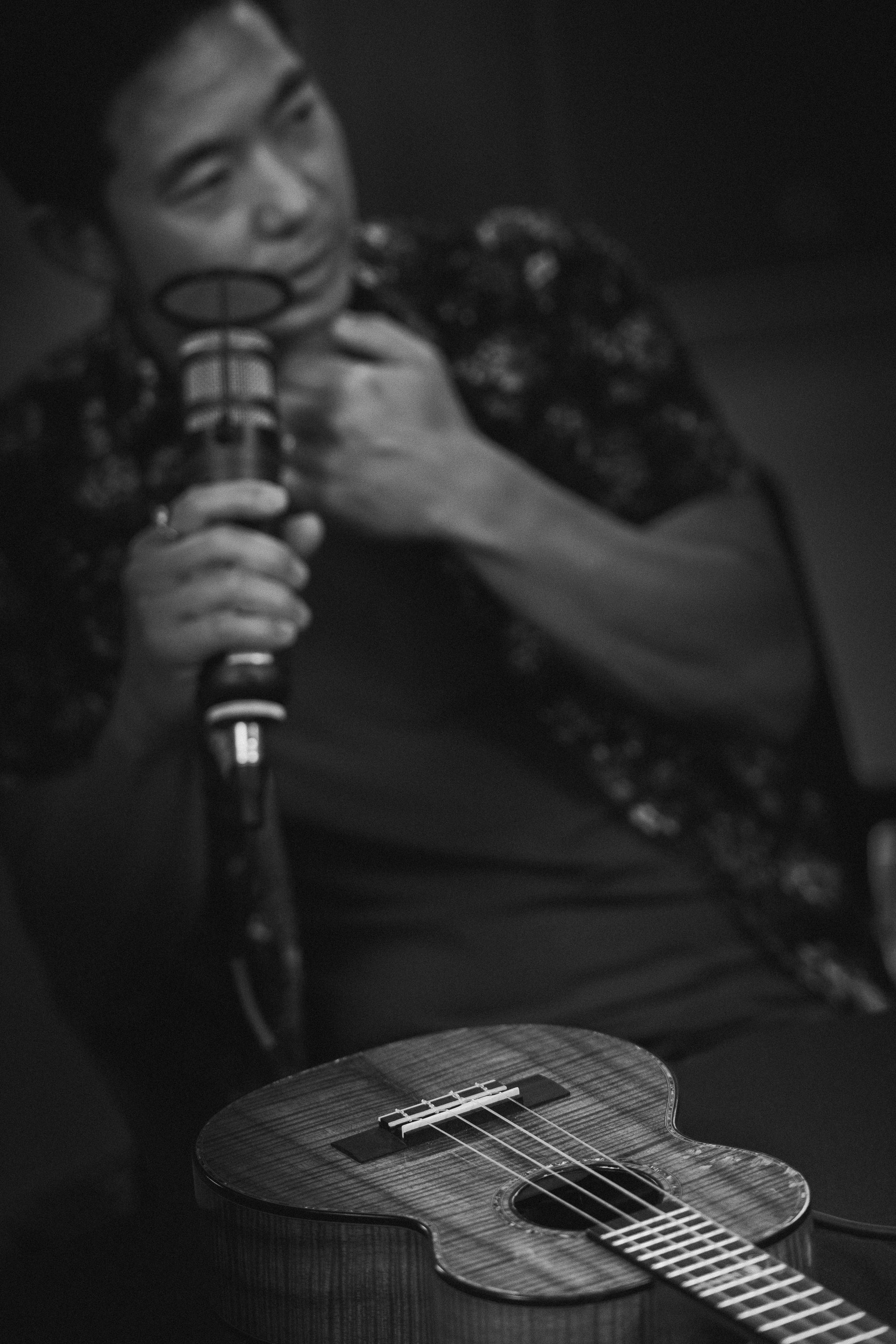Episode 140 - Jake Shimabukuro
A conversation with Jake Shimabukuro
Follow us on FB, Instagram, Twitter and also subscribe to get all our episodes!
Purchase Jake’s music below!
recorded June 19, 2019
published July 25, 2019
We met up with Jake before his concert in front of a sold out crowd at Cary Memorial Hall in Lexington Massachusetts.
Jake became an international sensation in 2006 when a YouTube video of him playing While My Guitar Gently Weeps in Central Park - without his knowledge - became one of the very first viral videos on that site with millions of views.
Jake plays the ukulele - which we also discovered can be pronounced "Ookelele". He has performed at numerous festivals including the Stockholm Jazz Festival and Blue Mountains Music
Festival and has appeared on Late Night with Conan O’Brien, Jimmy Kimmel Live, A Prairie Home Companion, NPR’s Morning Edition and World Cafe, and has spoken at several TED conferences.
In 2012, an award-winning documentary was released tracking his life, career, and music, titled Jake Shimabukuro: Life on Four Strings.
Jake is the founder The Four Strings Foundation, which creates music education workshops nationwide and provides ukuleles and other materials and training tools to schools and music teachers.
photo credit: Michelle Gendreau
Music in this episode
Song 1: While My Guitar Gently Weeps
Song 2: Courtesy of WCRB
Song 3: Bohemian Rhapsody
Song 4: Chuck Minor (a brand new song!!!!)
Song 4: The Greatest Day




















